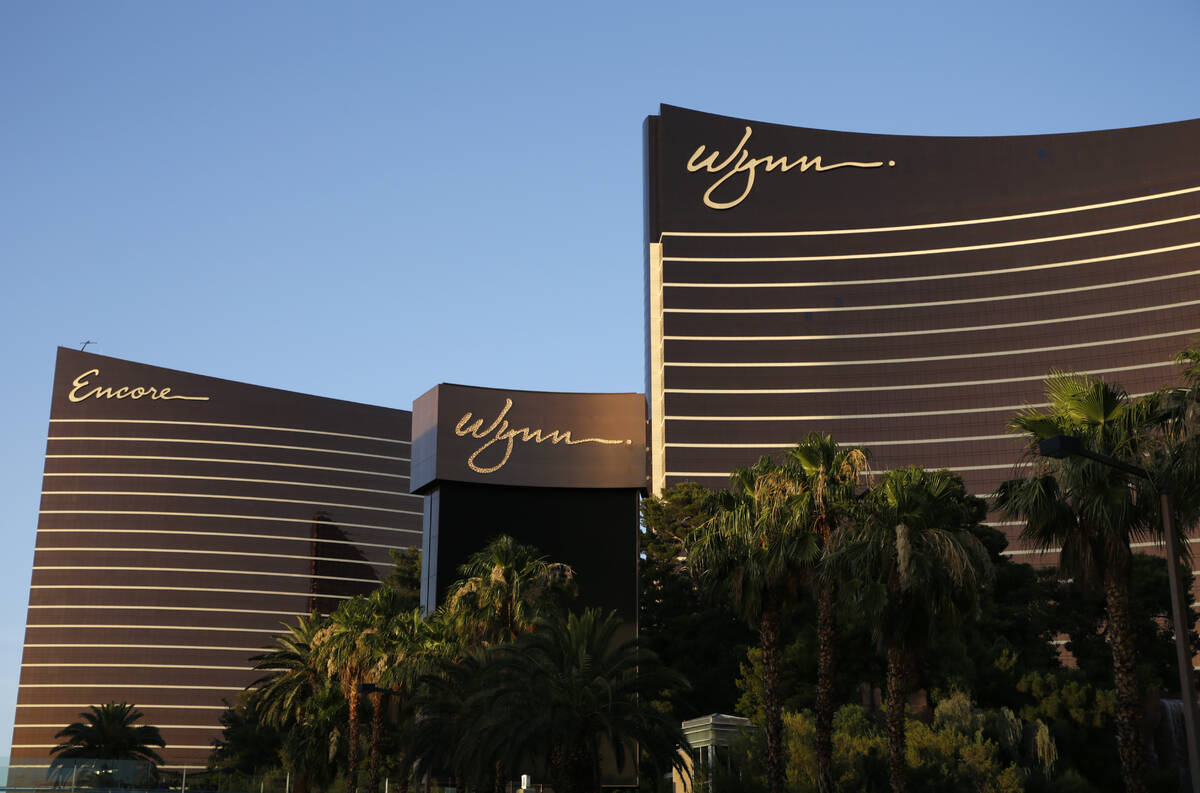Lawsuit: Wynn Resorts failed to prevent man from gambling millions in loaned funds
A Canadian mining company and its president and CEO claim in a lawsuit against Wynn Resorts Ltd. that the Las Vegas casino company failed to investigate the source of funds gambled and lost by a California man.
Toronto, Ontario-based James Bay Resources Ltd. and its president, Stephen Shefsky, allege in the lawsuit that while on probation, between January 2018 and June 2019, former decathlete David Bunevacz lost an estimated $3.8 million at Wynn Las Vegas and that some of those funds came from Shefsky and his company.
According to the lawsuit, Shefsky made two personal loans totaling $1.1 million and James Bay loaned $3.5 million to CB Holdings Group Corp. and Brutus California Ventures Corp., controlled by Bunevacz, of California, and his daughter, Californian Mary Hayca Bunevacz.
In the lawsuit filed in April in the Ontario Court of Justice against Wynn, James Bay and Shefsky allege negligence and unjust enrichment against the company. James Bay Resources Ltd. is listed on the Canadian Stock Exchange and mines for lithium.
“Wynn had ample opportunity to discover Mr. Bunevacz’ criminal record as well as the existence of multiple state and federal tax liens and civil lawsuits recorded against him — facts that would have given rise to a reasonable suspicion concerning the source of Mr. Bunevacz’ funds,” the lawsuit said.
Federal regulations require casinos to file suspicious activity reports to the U.S. Financial Crimes Network for transactions exceeding $10,000.
Wynn officials on Tuesday had no comment about the lawsuit.
Bunevacz, 56, is a businessman and former decathlete representing the Philippines. He was a gold medalist in the decathlon at the 1997 Southeast Asian Games, winning silver but being elevated to gold after his top competitor failed a drug test.
According to court documents, the Bunevaczes raised more than $39 million from 40 investors for a vape pen business.
In April 2022, the U.S. Securities and Exchange Commission issued a complaint against David Bunevacz for an alleged violation of federal securities laws. By reviewing the SEC complaint, Shefsky learned that Bunevacz spent an estimated $8 million in casinos.
Bunevacz was convicted in U.S. District Court in California in March 2017 on felony charges of selling securities without qualification and sentenced to prison. But while on probation, between January 2018 and June 2019, Bunevacz lost an estimated $3.8 million at Wynn Las Vegas.
“Wynn failed or neglected to make any such inquiries and instead willingly and blindly engaged in transactions with Mr. Bunevacz,” the lawsuit said. “In addition to the above-mentioned gambling, Wynn permitted or encouraged the Bunevaczes to spend money at Wynn’s hotel and casino, the amount and particulars of which are known to Wynn and are not known to the plaintiffs. Had Wynn complied with its statutory and common law obligations vis-a-vis Mr. Bunevacz, it would have developed reasonable suspicion that the funds being gambled and spent by the Bunevaczes were the proceeds of fraud.”
The complaint also labeled Bunevacz as “a problem gambler” or gambling addict and alleged that Wynn should have limited his gambling and rejected further attempts by him to gamble once the nature of his addiction became known.
In 2022, Bunevacz was sentenced to 17 1/2 years in prison for fraudulently raising more than $45 million from investors who were told their funds would be used to finance companies marketing cannabis vape pens.
The plaintiffs are seeking damages for negligence, consequential damages determined at trial plus prejudgment and post-judgment interest. They seek a trial in Toronto.
Contact Richard N. Velotta at rvelotta@reviewjournal.com or 702-477-3893. Follow @RickVelotta on X.



















